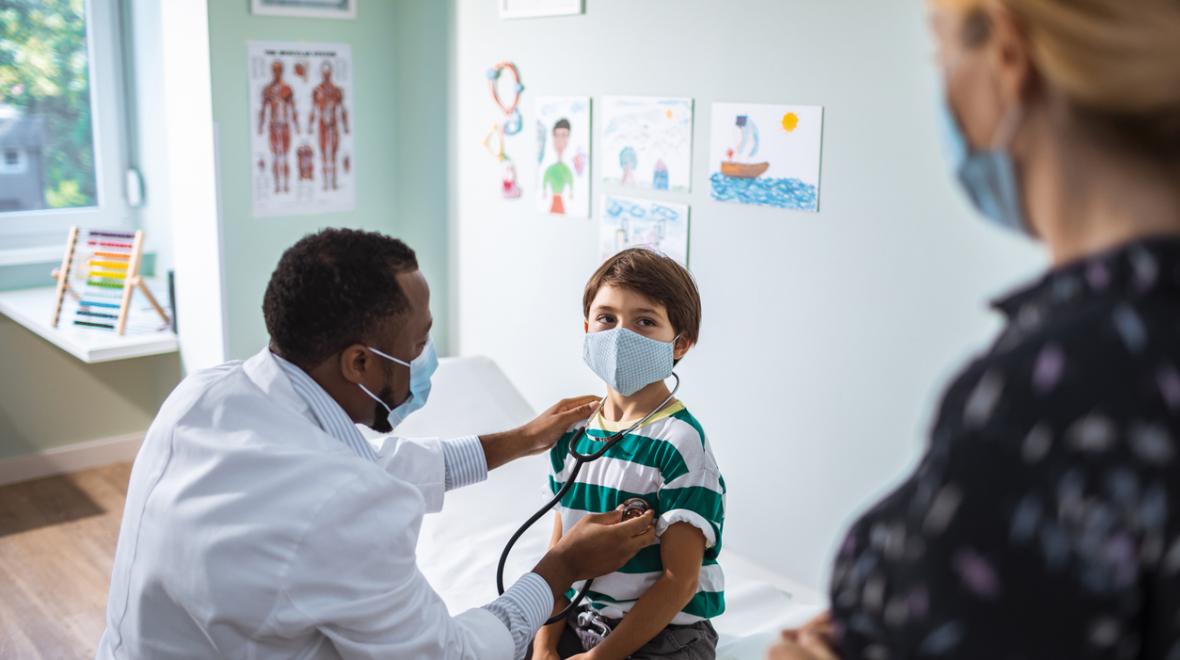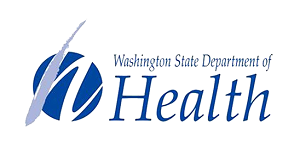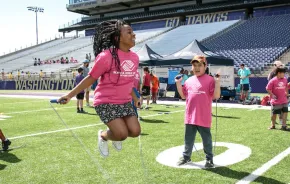
Editor's note: This article was sponsored by the Washington State Department of Health.
The Washington State Department of Health (DOH) reports that there has been a sharp drop in standard vaccinations since the onset of the COVID-19 pandemic in 2020, as many kids have missed out on routine doctor’s appointments. The agency is taking time this summer to remind parents and guardians to get back on track with required immunizations as well as important well-child visits and physicals, a vital step in readying children for the new school year in the fall.
The importance of regular visits to health-care providers
State laws already govern vaccine requirements for school and child care enrollments, so the seasonal timing of the message isn’t necessarily unique. Michelle Terry, M.D., a clinical professor in the Department of Pediatrics at the University of Washington School of Medicine, encourages families to avoid the mad rush at the start of the school year by scheduling checkups now.
“Making an appointment with the doctor might require a four- to six-week lead time,” says Terry. “In getting kids ready to get vaccinated and start school, folks need to make appointments now. A lot of people make their well-child appointments in the summer because kids generally have more flexibility in their schedules.”
Families may have fallen off a fixed well-child schedule for a variety of reasons, she notes. A year ago, many doctor’s offices didn’t want more people than necessary showing up for care, and practices pivoted quickly to offer telemedicine services. At the same time, many families didn’t want to risk exposing themselves to the coronavirus, deciding to forego physicals and routine exams in favor of the safety of staying home. “It went both ways, given how busy folks were and are,” says Terry.
Though the evolving virus still holds a tight grip over many facets of normal life, the medical and health-care landscape looks decidedly different this year, with COVID-19 vaccines now readily available for those ages 12 and older. While DOH’s vaccination reminder isn’t specific to the COVID-19 vaccines, Terry emphasizes the similarity between the desired result of COVID-19 vaccinations and other childhood immunizations: “When you get vaccinated, you and your children are protecting yourselves and your community.”
How to access your family’s vaccination records
Even if paper copies of immunization cards or records have been misplaced, any vaccines your family members have received within Washington state most likely have been recorded in the state immunization registry. Parents can sign up for free to access their family’s immunization records at MyIR, the state registry’s consumer portal. Information about immunizations can then be easily shared at the parent or guardian’s discretion with schools, child-care providers and athletic clubs. Families can also manage their schedules and coordinate future recommended immunizations with their health-care provider based on forecasting information, which is also displayed in the MyIR application.
What standard vaccinations does my child need for the 2021–2022 school year?
The DOH outlines the state’s list of required immunizations for school or child-care enrollment. “Kids need five vaccines going into kindergarten, and that should cover them until seventh grade, when they’ll need one additional vaccine. But kids can catch up on missing vaccinations at any age,” notes DOH Immunization Health Educator Danielle Koenig. The DOH also publishes an easy-to-understand schedule of required immunizations for each school year on its website.
Parents should confer with their child’s doctor about other vaccines that might be required, too — not just those needed for school. “Kids attending child care need additional vaccines, and others are recommended to keep your child protected from other serious diseases. For example, kids ages 9 and older can get the HPV vaccine, which prevents several types of cancer,” says Koenig.
There’s never a recommendation to start over a vaccine series, Koenig notes. “If your child got behind because you were staying home during the pandemic or didn’t know what they needed during remote school, that’s fine. If you aren’t sure if they have vaccines due, that’s fine, too! Don’t be afraid to ask. Your child’s provider will be able to tell you what they need and when. They’ll know whether they’re still able to follow the regular schedule, if they need the catch-up schedule, or if they’re all caught up,” says Koenig.
Maintain an open dialogue with your child’s health-care provider
The many types of immunizations recommended for children can understandably give rise to questions about vaccines or even confusion about the immunizations schedule. Koenig says that while the DOH campaign is about reminding families to catch up on missed shots from the past year and a half due to pandemic-related changes and issues, the most important thing is that parents and providers have open communication between them where factual information can be shared and parents’ questions addressed.
“The decision to immunize your child is an important one. We want parents to make informed health-care decisions based on accurate information. There is an overwhelming amount of vaccine-related material out there, and we know that parents want information that is trustworthy and clear. Your child’s doctor can answer any question you have, whether it’s about the schedule, the safety of a vaccine or what vaccines do. Don’t hesitate to ask them!” says Koenig. The Department of Health website is a tremendous resource for parents hoping to better understand and navigate immunization topics, requirements and recommendations.
“Of course, parents want to do what’s best for their children. Overall, what we want parents to understand and feel confident about is that vaccination is very safe and effective. Immunizations have saved millions of lives, and prevented illness and disability for millions more,” says Koenig. Terry adds, “Serious side effects following vaccination, such as severe allergic reaction, are very rare. The disease-prevention benefits of getting vaccines are much greater than the possible side effects for almost all children. We have vaccines because there are not effective and efficient treatments for many of the diseases that those vaccines prevent.”
Preparing your child for a safe return to in-person learning
While catching up on primary and preventive health-care services is more essential than ever, getting ready for a new school year involves more than simply getting immunizations. In taking stock of all the challenges that families have faced over the past 18 months or so, Terry says there are a few things parents and guardians can prioritize and work on starting now and into the fall:
- Stick to a routine and schedule, even in the summer. “Everyone does better with a schedule,” she says. “Kids can experience anxiety when you don’t have any plans at all.”
- Though pandemic precautions still put a damper on some summer freedoms, encourage kids to stay active and engage safely in as many activities as possible, for their physical and mental well-being.
- Offer lots of encouragement and listen to children’s concerns about returning to in-person learning, while at the same time helping them to problem-solve solutions. “Self-advocacy is an essential skill children need to develop to succeed in school settings.”
- Get involved right at the beginning. Set out to develop and maintain a strong line of communication with teachers when school does commence. Respect teachers’ boundaries, but ensure any longer conversations that need to take place can be done by phone. Get a hold of schedules, learn from teachers how classroom routines are expected to work and get an outline for curriculums.
- Terry saves perhaps her best tip for last: Embark on the new school year positively. “Expect the best, begin with a positive attitude and follow through with that.”
“Vax to School” resources for parents:
|
|
Sponsored by |
|
|












